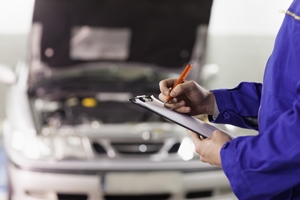 Prevention is the best measure when it comes to road safety. This is why it’s essential to check your car every season to ensure it’s in effective working condition – don’t wait until you take it to the mechanic!
Prevention is the best measure when it comes to road safety. This is why it’s essential to check your car every season to ensure it’s in effective working condition – don’t wait until you take it to the mechanic!
Here are three checks you should do every season:
Check oil levels
Your vehicle’s oil level is essential to the efficient running of your engine. According to the National Roads and Motorist’s Association (NRMA), if you regularly use your car for trips shorter than 20 km, contaminants such as water vapour and gases can end up in the oil and cause it to lose its protective qualities.
Cars traveling more than 20 km per drive may be able to break down these contaminants due to heat. However, it’s still worth checking (and changing, if necessary) your oil. Automotive lubricant company Castrol Australia suggests changing your oil every six months or every 5,000 km. Check your car’s manual or handbook for guidelines and any specifications you need to know about.
Check your tyres
Tyre checks should be done on a regular basis, but it’s a great idea to do a thorough, overall check at the start of each season. Look for overall tyre quality with no uneven wear, check your tyre pressure, and consider booking in for a wheel alignment and wheel balance. It’s also a good idea to get your tyres rotated at the start of each season. Bridgestone Tyres recommends a rotation every 5,000 to 8,000 km of driving.
Renew your registration
Letting your registration run out can mean your vehicle also has no ctp insurance – not to mention it’s illegal! Take note of your vehicle’s registration expiry date and renew your registration before it expires.
To do this, you’ll first need a ctp green slip. Compare green slip prices and pick the best deal for you, get a vehicle safety check and then renew over the phone, by post or in person at a motor registry.

 When searching for a new car, safety is often at the top of the list for Australians. Driving can be dangerous, so making sure your car is packed full of safety features is one of the best lines of defence in case of an accident.
When searching for a new car, safety is often at the top of the list for Australians. Driving can be dangerous, so making sure your car is packed full of safety features is one of the best lines of defence in case of an accident. There are certain responsibilities that come with owning and driving a car on the Australian roads. From obtaining a ctp green slip and registering your vehicle to ensuring you stick to the speed limit, owning a car is something that can’t be taken lightly.
There are certain responsibilities that come with owning and driving a car on the Australian roads. From obtaining a ctp green slip and registering your vehicle to ensuring you stick to the speed limit, owning a car is something that can’t be taken lightly.